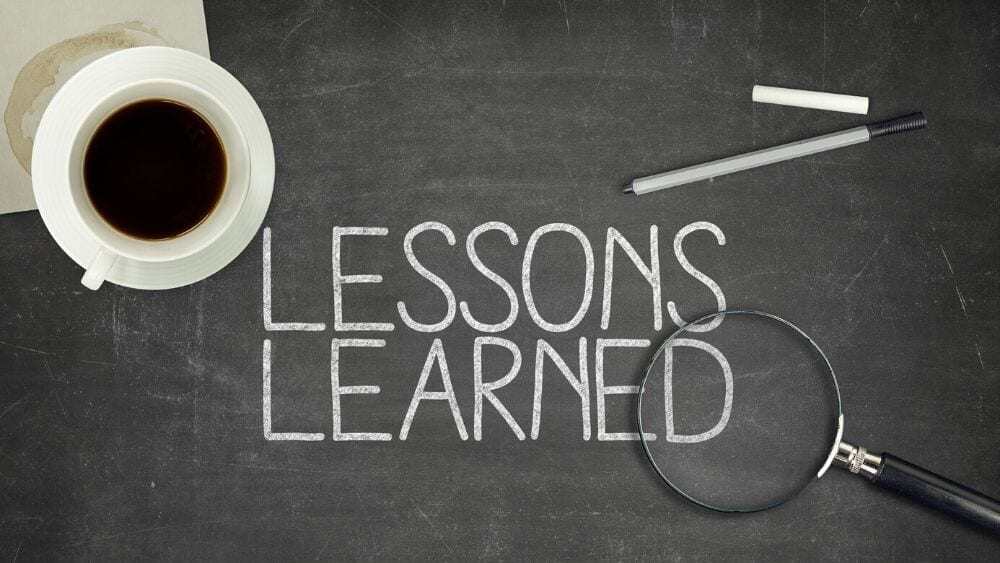No Trust, No Relationship, No Money: On Self-Trust (Part 1 of 4) - Veritus Group
This is Part 1 of a series on building trust: “No Trust, No Relationship, No Money.” Trust is the core building block of all relationships. Yet many...
3 min read
Richard Perry and Jeff Schreifels : Updated on November 19, 2024

Fifth in a Six-Part Series: What Should I Do If…?
“How can I get a donor to talk to me?” said thousands of major gift officers. This is one of the most-asked questions we get at Veritus. We’ve written extensively on this subject. But it’s always worth writing and thinking about.
Before I give you some practical ideas, let’s step back and review why a donor might not want to talk with you.
Why Doesn’t a Donor Want to Talk with YOU?
Richard and I believe there are two main reasons: 1. They don’t want a relationship beyond what they currently have with your organization, and 2. They believe you have nothing of value to offer them.
1. They don’t want a deeper relationship with your organization
If you’ve been reading our blog for any length of time, you know we’re all about qualifying donors before they’re put into a major gift portfolio. You can read about how to do that here. Essentially, if a donor makes a qualifying gift that your organization would deem a “major” gift, that doesn’t necessarily mean the donor wants a more engaged relationship with you. They may or may not want to talk to a major gift fundraiser.
This is where many non-profits and institutions make their biggest mistake. A donor makes a major gift, and someone puts them into a major gift portfolio. Richard and I have seen portfolios of hundreds of donors who have never been qualified, and the MGO is tearing his hair out, asking us why he can’t get a donor to talk to him. The answer is that two thirds of donors that meet your “major gift metric” don’t want a deeper relationship with you. They already like the relationship they have.
This is the #1 reason donors won’t talk to you. So the solution is to qualify them. Get our White Paper to find out how to do that. It will change your life, if you’re a major gift officer who’s always frustrated with donors not wanting to talk to you.
2. Having nothing of value for the donor
Let’s say you have a full caseload of qualified donors, and you’re still having trouble getting some of your donors to talk to you. Another big reason we find that donors aren’t talking is that they currently don’t see any value in having a discussion with you.
Answer this question:
“What are you doing throughout the year to create value and desire in your donor to invest in your mission?”
Be honest. Because if you were doing the work of understanding what your donor’s passions and interests were, and if you were crafting communications, showing impact, and providing opportunities that matched those interests with the projects and programs of your organization – if you were doing those things, more often than not, your donor will talk to you.
This is why it’s so important to have a 12-month strategic plan for every one of your donors – so you can be consistent in your communications with them.
Understand that if you’re creating value and desire in your donor through consistent communication that respects how the donor wants to be communicated with, they’ll TALK to you on the phone, email you, meet with you – engage with you!
So if you do these two things correctly – qualify and provide value – you’re going to get your donors to communicate with you.
But if you’ve done all this work and you’re STILL having problems getting a donor to engage, here are a few practical ideas you can try:
If you’re a major gift fundraiser who’s having trouble getting a donor to talk with you, instead of getting frustrated and angry at your donors – step back and ask why. There may be an answer somewhere in what I’ve written here that will help you connect with donors that truly want to engage with you.
Jeff
Read the whole series, What Should I Do If…?
What If Leadership Is NOT Entirely on Board with a Donor-Centered Program?
What If I’m Trying to Upgrade a Mid-Level Donor and No One Has Ever Talked to Them?
What If My Older Donor Stops Giving, but They Tell Us They’ve Made a Planned Gift?
What If I’m Trying to Promote Better Collaboration Between Departments?
What If I Can’t Get a Donor to Talk to Me? (This post)

This is Part 1 of a series on building trust: “No Trust, No Relationship, No Money.” Trust is the core building block of all relationships. Yet many...

As we work with thousands of front-line fundraisers, our team at Veritus gets to see how The Veritus Way of mid, major and planned gifts works itself...

Your hands ache from writing “We couldn’t do this work without you,” on hundreds of cards. The papercuts on your fingertips sting as you shovel...